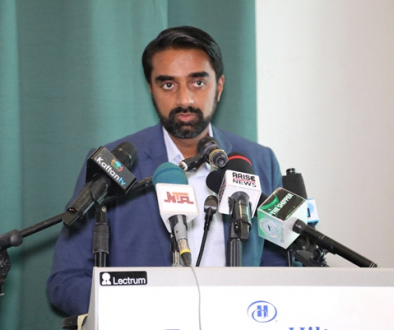Automate Away Extortion in Public Service Delivery
 The depth of the rot in public service delivery and the racketeering of public services were demonstrated to me on a recent visit to the National passport and Immigration Service, Abuja to obtain a new passport. This was necessary because I had recently changed my name as a result of marriage. On arrival at the external gate that houses many military offices and houses, I was asked by the officers checking car boots of entrants if I knew any immigration officer? I was perplexed at the question, why did I need to know immigration officer?
The depth of the rot in public service delivery and the racketeering of public services were demonstrated to me on a recent visit to the National passport and Immigration Service, Abuja to obtain a new passport. This was necessary because I had recently changed my name as a result of marriage. On arrival at the external gate that houses many military offices and houses, I was asked by the officers checking car boots of entrants if I knew any immigration officer? I was perplexed at the question, why did I need to know immigration officer?
As I proceeded, on alighting from the car and passing a checkpoint on the way to the Passport office, another set of immigration officers asked me if I “had any immigration officer helping me? And that if not, they could help arrange one”. It was then that it occurred to me that obtaining a passport, a right of every citizen, had become a means for immigration officers to obtain money for a free service (free defined as excluding the prescribed cost of the passport and official cost of the service), and that this unethical and illegal practice was institutionalized and enforced by the many gatekeepers. As my journey progressed, and I left the checkpoint to enter the office, I realized one couldn’t enter or be attended to without an officer bearing your file.
I considered my options, should I insist that due process be followed? This option supposes that I will be willing to, as I heard from another person who took this option, visit the office from morning to evening for days or even weeks on end and eventually receive my passport in a month or God knows when. My second option was to contact a travel agent I knew who had a fixer within the organization. I took the second option (Mea Culpa!). While I know my action was wrong, I didn’t have the willpower or resources to fight that battle that day, I had flown to Abuja, booked a flight and hotels for only a few days and was nursing a baby who was with me.
However, contrast this experience to one I had while obtaining a passport at the Nigerian Consular office in New York, just a few months earlier in September 2013. The process went thus, I filled a form online and made a payment on a secure payment portal online. Thereafter, my appointment date was emailed to me. On the given date, I visited the consular in the morning and received a queue number from an automated dispenser. Documents and photographs were reviewed and captured in the order of the numbers. We waited till afternoon and by 2pm the passport was received. The only money I parted with was the cost of passport as specified on the Nigeria New York Consular Office, which was paid online.
I have said this long story to highlight this point, automation is a tool we can and should employ to reduce bribery and extortion in the delivery of public services. In the Abuja version of my passport story, if payment, filling of forms, assignment of appointment dates and processing of application was automated, the racketeering of passport services will reduce substantially. The industry of immigration officers being paid extra and might I say enormously (the average price of the payment ranges from N25, 000-N30, 000) for facilitating a public service that should require no payment above official rates, is wrong and should be stopped.
To be fair, according to the website of the Nigerian immigration office, http://www.immigration.gov.ng/, a news update dated July 10, 2009 states that “payment for all immigration services now online’’. While this might be true in policy, it is not true in practice. Although the portal exists, when I tried submitting the form, it was unsuccessful despite several attempts. Even if it had worked, the obstacles I encountered at the Abuja office didn’t persuade me of the level of adaptation and implementation of the portal.
The promise of automation has much potential for increasing efficiency in all areas of public service. A former consultant to a state government once recounted to me how they were able to obtain the yearly revenue generated from traffic offences in one month simply by installing payment machines on site at one of the four parking lots where offenders’ vehicles were taken.
Imagine if the promise of automation were taken further by applying it to reducing paperwork, dispensing information manual record keeping, payment of taxes, review of public service institutions, etc. The reduction in bribery and gains in efficiency and ease of doing business will be remarkable.
In sum, I can only ask that NIS Nigeria please take a cue from its officers and their performance in the New York Office. And stop this racketeering, which is a national embarrassment.
image source: Automated-Intelligence


